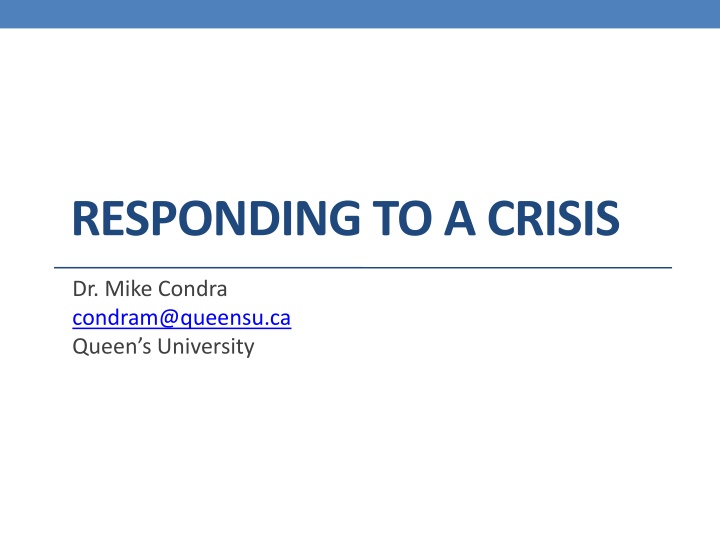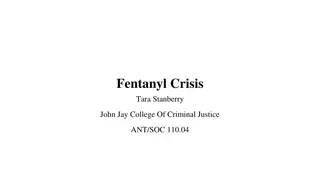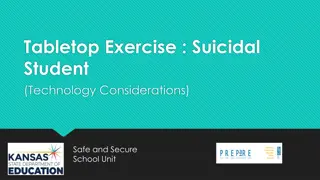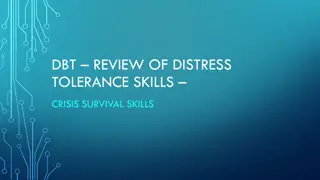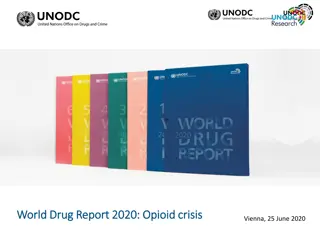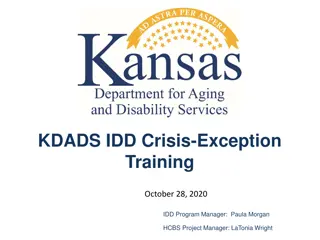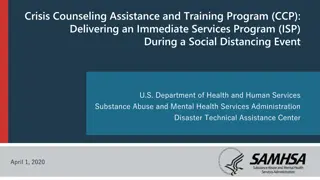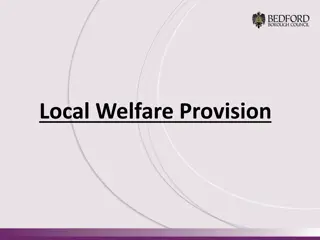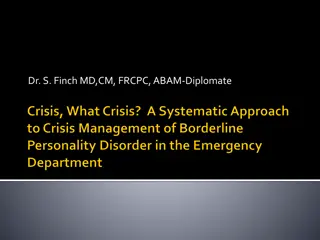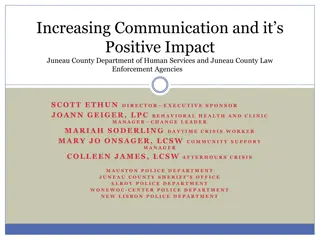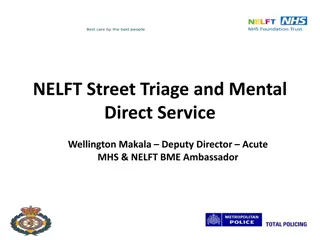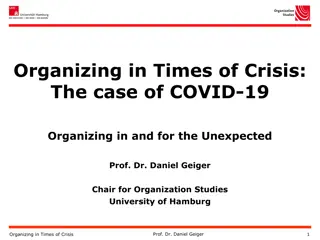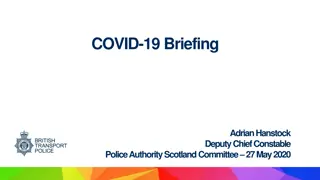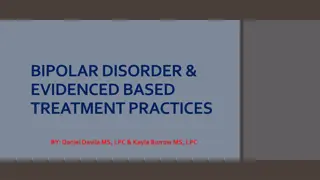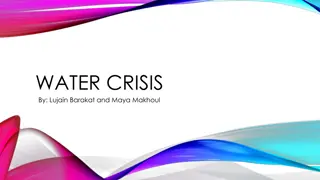Dealing with Crisis: A Comprehensive Guide
Crisis can leave individuals feeling overwhelmed, helpless, and unable to cope, affecting their emotions, thoughts, and behaviors. Recognizing the signs of a crisis and understanding the components involved can help in effectively managing and responding to such situations. This guide explores the definition of a crisis, its signs, process, outcomes, and provides strategies for mentors and peer mentors to support individuals in crisis.
Download Presentation

Please find below an Image/Link to download the presentation.
The content on the website is provided AS IS for your information and personal use only. It may not be sold, licensed, or shared on other websites without obtaining consent from the author.If you encounter any issues during the download, it is possible that the publisher has removed the file from their server.
You are allowed to download the files provided on this website for personal or commercial use, subject to the condition that they are used lawfully. All files are the property of their respective owners.
The content on the website is provided AS IS for your information and personal use only. It may not be sold, licensed, or shared on other websites without obtaining consent from the author.
E N D
Presentation Transcript
RESPONDING TO A CRISIS Dr. Mike Condra condram@queensu.ca Queen s University
Crisis Defined People are in a state of crisis when they face an obstacle that is, for a time, insurmountable by the use of customary methods of problem-solving (Caplan, 1961, p. 18)
Signs of a Crisis Emotions Thinking Tearfulness, Feeling overwhelmed Feeling helpless Anxious Panicky I can t cope This is devastating (awful, terrible) What ll I do? Physical Behaviour Disheveled appearance Nausea Agitation Jumpiness Headaches Disorganization Changes in eating and/or sleeping
Crisis Process Leads to a Crisis Situation Insurmountable With Present Coping skills Perceived Obstacle
Crisis Outcomes Positive outcomes from a crisis: Person may become less defensive, their vulnerability increases (more open to making changes) Person may seek help, may deal with ongoing problems Negative outcomes from a crisis: Depression, suicidal ideation
Crisis Components External Situation Internal State Event Physical State Emotions Obstacle Self-Efficacy Increased heart rate Fear Decreased agency Overwhelmed Increased arousal Negative self- talk Decreased coping Results in Overwhelming of Coping Skills
What Mentors Are Working On Internal State Physical State Emotions Self-Efficacy Increased heart rate Fear Decreased agency Increased arousal Overwhelmed Decreased sense of self-competence Negative self-talk
Peer Mentor Strategies Internal State Physical State Allow opportunity to vent Patient listening Allow for silence Help with the internal monologue Gentle voice Self-Efficacy Engage in deep breathing or relaxation Move to a calm environment Encourage problem- solving Identify possible solutions Provide support
Crisis Continuum The impact of a crisis is dependent on: Severity of the event, Level of resilience (coping skills), Prior history of dealing with crises, and Current state of mental health Mild Severe Disruption Disruption Moderate Disruption
A Peer Mentors Role On a Continuum Mild Disruption Severe Disruption Supportive Directive Moderate Disruption Supportive/Assistive
Program Crisis Response Policy 1. Implement the strategies you have learned. 2. If the crisis exceeds the Mentor s capacity to respond: Not a life-threatening crisis: [Insert contact information for a local mental health or crisis resource, e.g. a mobile mental health crisis response team] A life-threatening crisis: CALL 9-1-1 3. Report to the Program Coordinator 4. Remember to debrief
Activity: Crisis Case Scenarios Review the case scenarios in your small group and discuss the following questions: 1. What tells you this is a crisis? 2. What is the severity of this crisis? 3. How can you help your Mentee?
Know Your Limits, Respect Your Limits Know your limits Who we are/our personal values Our state The extent of the crisis Our health Respect your limits Program support Personal support
Protect Your Mental Health Maintain Personal Boundaries Importance of personal boundaries Avoid making your Mentee s crises your own Avoid carrying the emotional footprint of your mentoring session with you and into your personal life Avoid feeling responsible for your Mentee s mental health situation Some Warning Signs Feelings of dread about seeing or contacting your Mentee Disruption of your mental health e.g. difficulty sleeping Prolonged worry or rumination about your Mentee and what happened during your meetings Inappropriate and excessive contact outside of the Mentoring relationship
How Peer Mentors Can Help Peer Mentors CAN: Support Model Teach Guide Be a resource Promote hope Peer Mentors CAN T: Fix Correct Solve Treat As Mentors, you will have a TREMENDOUS positive impact on your Mentees
